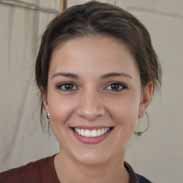AP Psychology Chapter 1 – Flashcards
Unlock all answers in this set
Unlock answersquestion
Behaviorism
answer
Theoretical perspective that emphasizes the study of observable behaviors, especially as they pertain to learning. Viewing behavior as the product of learning and associations.
question
Dualism
answer
the idea that the mind and body are two separate entities
question
Empiricist
answer
person who believes that knowledge comes from experience with the environment
question
Introspection
answer
looking inward in an attempt to study feelings and sensations; came from structuralism; studied by Wundt and eventually Titchener.
question
Nativist
answer
person who believes that certain ideas or personal characteristics are innate or inborn
question
Psychology
answer
the scientific study of behavior and mental processes
question
Plato
answer
Greek philosopher who proposed that some ideas are innate
question
Aristotle
answer
Greek philosopher who proposed theories to explain many aspects of human behavior; supported the empiricist view that all knowledge comes from sensory experiences.
question
Rene Descartes
answer
French nativist philosopher; proponent of dualism; argued that threads within body control movement, and that some behaviors occur without thought
question
John Locke
answer
British empiricist philosopher who argued that the mind is a blank slate at birth.
question
Hermann von Helmholtz
answer
German physiologist who demonstrated that the movement of impulses in the nerves and in the brain was not instantaneous, but instead took but finite amount of time. Made groundbreaking discoveries about how the brain processes sound and sight. Eventually teaches Wundt.
question
Charles Darwin
answer
British biologist who introduced the ideas of natural selection and evolution; argued that specific behaviors evolved because they led to advantages in survival or reproduction
question
Wilhelm Wundt
answer
German physiologist who founded psychology as a formal science; opened first psychology lab in 1879
question
G. Stanley Hall
answer
American phychologist who established the first psychology research lab in the U.S. and founded the APA
question
Edward Titchener
answer
student of Wundt; popularized the method of introspection
question
William James
answer
American philosopher and psychologist who wrote and influential psychology textbook
question
Herman Ebbinghaus
answer
German psychologist who conducted the first extensive experiments on memory
question
Mary Whiton Calkins
answer
American psychologist who conducted research on memory, personality, and dreams. First woman president of the APA
question
Sigmund Freud
answer
Austrian physician whose work focused on the unconscious causes of behavior and personality formation; founded psychoanalysis. Most of his theories no longer hold.
question
Ivan Pavlov
answer
Russian psychologist who discovered the principles of classical conditioning. Behavior happens because of stimulus. Dog and bell.
question
Edwin Thorndike
answer
American psychologist who conducted the first experiments on animal learning by studying cats. Concluded that humans think more because of the frontal lobe.
question
Margaret Washburn
answer
American psychologist who studied animal behavior; first woman to receive a Ph.D. in psychology
question
John B. Watson
answer
American psychologist who founded behaviorism, emphasizing the study of observable behavior and rejecting the study of mental processes
question
B.F. Skinner
answer
American psychologist who championed behaviorism and studied operant conditioning. Behavior happens because of the reward afterward. Origins of superstition. Reinforcement. Pigeons.
question
Jean Piaget
answer
Swiss psychologist who pioneered the study of cognitive development in children
question
Abraham Maslow
answer
Humanistic psychologist who developed a theory of motivation that emphasized psychological growth. Hierarchy of needs.
question
Noam Chomsky
answer
American linguist who influenced the growth of cognitive psychology
question
Carl Rogers
answer
American psychotherapist who was a supporter of humanistic psychology
question
Sociocultural Approach
answer
Behavior viewed as strongly influenced by the rules and expectations of specific social groups or cultures; you do what you do because it's what's socially acceptable.
question
Research Psychologists
answer
Those who study the origin, cause, or results of certain variables.
question
Theory
answer
Explanation using an integrated set of principles that organizes observations and predicts behaviors/events. Past experiences and observations are used to predict future events.
question
Neurobiological Approach
answer
Viewing behavior as the result of biology plus nerve cells. Electrochemical activity in the neurons are studied to see how the brain is affected.
question
Applied Psychologists
answer
Scientific study that aims to solve practical problems. Take info and go do something with it.
question
Psychoanalysis
answer
Freud's theory of personality and therapeutic technique that attributes thoughts to unconscious motives and conflicts. Patient's free associations, resistances, dreams and transferences released previously repressed feelings, allowing the patient to gain self-insight. Unconscious mind, past experiences.
question
Eclecticism
answer
An approach to psychotherapy that, depending on the client's problem, uses techniques from various forms of therapy. Borrowing and taking ideas from other groups.
question
Humanistic Approach
answer
Emphasized the growth potential of healthy people and individual's potential for personal growth. People are basically good and capable of helping themselves.



